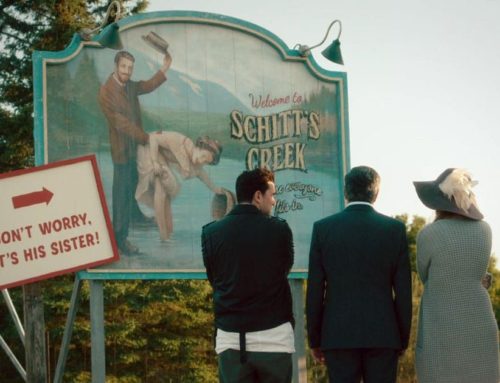A guest blog post by Dana Fonteneau
Dana is a licensed Marriage and Family therapist who specializes in working with performing artists. She will be featured in an upcoming episode of The Portfolio Composer. This post was originally posted on The WholeHearted Musician blog.
That is the simple truth. As a musical entreprenuer, you get to design the life you dream of.
I define a freelancing career as a career based on self-employment vs a full-time tenured position that provides one’s sole source of income including retirement and health benefits, etc.
What this means is that you, as your own employer decide:
- What projects you focus on
- How much you work
- When you work
- Where you work
- How you work
- With whom you work
- How much you charge
- How much you earn
- When you get paid
- How you get paid
- Where your money goes
- Your vision
- Your artistic standard
- You are responsible for the outcome
- And much more…
Somewhere along the line freelancing became a dirty word, as my client said, a symbol of failure because one didn’t get “a real job.”
But let’s look at what a “real job” might entail.
Now, for the sake of clarity I am going to assume that this is not your dream job that you’ve been working your whole life for and are thrilled and ecstatically fulfilled doing. I am going with what most people think of a “real job” which is a music related job that pays a steady salary and hopefully benefits.
Most people think of a “real job” as a sign of “making it” by the profession’s standards (you’re good enough), and a source of certainty (you know you have regular work) and constancy (you know how much you’ll get paid, how often and when.)
Grim, I know. I’m starting with these bleak parameters because week after week this is what I hear in my office when doing career consulting.
So let’s take a look at what a “real job” could look like. A common one that many people seek is a university or conservatory teaching job. (There are of course many other jobs, so if you prefer a different one then take these points and translate them to your specific scenario.)
A full-time position at a music school, university or conservatory can involve:
- Teaching a set amount of students private lessons every week
- Teaching a studio group class
- Performing faculty recitals at least once a year
- Performing with guest artists and other faculty members
- Coaching chamber music
- Coaching orchestral sectionals
- Teaching academic classes
- Attending students’ recitals
Other things that one may not think of are:
- Attending faculty meetings
- Attending fundraising events
- Academic advising
- Being on different school-wide committees
- Listening to prospective students’ auditions
- Listening to incoming students’ placement auditions
- Faculty retreats
- Meetings with human resources, scholarship committees, academic advising boards
- Meetings with different department chairs
- Filling out paperwork such as grades, time sheets, evaluations and administrative questionnaires
- Post-concert social events
- School-wide holiday parties
- Graduation
Can you see how much time is spent doing things that may not be directly related to the things you love doing, such as performing and teaching? These tasks and obligations are often in addition to what is described as your full-time teaching load.
Other things to consider about a full time “real job” is that once the salary is negotiated it rarely gets raised any significant amount. That means your income is capped by your negotiated salary (after taxes) and how much you can additionally earn during any extra time you have outside of your full-time job.
Can you see how that very need for constancy and security also creates a limit to what’s possible: locking you in, year after year where someone else decides how you manage your time and how much you get paid?
As an entrepreneur, you are your own boss. THERE ARE NO GATE KEEPERS BETWEEN YOU AND YOUR DREAMS.
YES, freelancing can have a lot of instability and volatility at first until you learn how to create systems that create stability and take you out of that “feast or famine” cycle. These are not hard to do but require discipline, focus, and long-term planning. There is NO LIMIT to how much you can do and earn, IT’S UP TO YOU!!!!
It takes a lot of work, but then again, what doesn’t?! If you’re going to be busy and work really hard, you might as well be doing what you LOVE!
We have been told so many times that we have to sacrifice or compromise what we truly believe in so we can earn a living. Then we look around and search for the ways we think other musicians are making a living and decide somehow that those are the only ways it’s possible to have a sustainable life in music.
There is nothing wrong with being a full-time employee if that is what you truly would LOVE to being doing musically and if it’s what you find most inspiring and fulfilling.
But if those full-time jobs are only because you don’t see any other way to make a decent living, then I suggest you think long and hard.
Earning money is a skill set in and of itself. It involves study and discipline just like learning to play a musical instrument. Valuing money and caring about yourself enough to demand fair exchange is essential.
The WholeHearted Musician came to life because my mentor Dr. John Demartini made me sit down and answer these two questions:
- What problems does the world have that I am inspired to solve?
- How can I do what I love and get paid in fair exchange?
I am now doing what I love, designing my own inspired life and earning more than I ever did through employment. Has it been hard, yes! Frustrating, exhausting and challenging? No doubt. The difference is I’m in the driver’s seat of my life. I’m no longer waiting for someone to give me permission to finally go out and do what I love and make a difference.
“I wish I could show you when you are lonely or in darkness the astonishing light of your own being.”―
Dana Fonteneau is the founder and creator of The WholeHearted Musician-a coaching and consulting business devoted to empowering artists to claim successful, fulfilling and sustainable careers. A former concert cellist with a BM and MM from the San Francisco Conservatory of Music, Ms. Fonteneau is now a licensed marriage and family therapist, somatic practitioner and career coach. She guest presents throughout North America and is the author of It’s Not (JUST) About the Gig…. You can learn more about Dana and The WholeHearted Musician at www.thewholeheartedmusician.com.
This post contains affiliate links.





